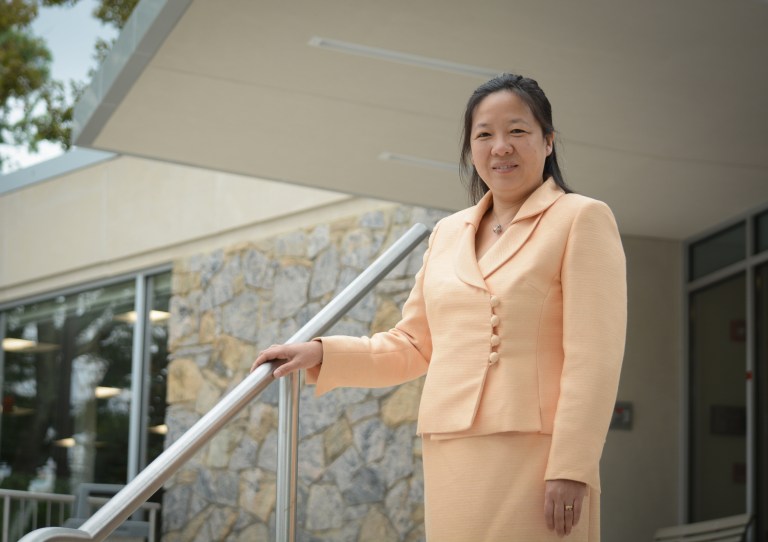
Qiping Zhang, an associate professor of library and information science at LIU Post, said she is mounting a write-in campaign to try to join the Great Neck Library Board of Trustees.
Zhang, who has lived in Great Neck for 10 years, said her decision to run stems from both the personal – she and her family grew up in libraries – and a sense of obligation because of her professional experience.
“I have been research teaching in the field so many years,” Zhang said in an interview. “I feel I have the knowledge and expertise to contribute to make this library better.”
The write-in campaign pits Zhang against Nominating Committee endorsed candidate Mimi Hu, who has served with the Great Neck Chinese Association’s board of directors and parent-teacher organizations in the Great Neck schools.
They are running for the seat of Robert Schaufeld, the current library board president, who is running as an independent candidate for the seat of Francine Ferrante Krupski against Scott Sontag, who was also endorsed by the Nominating Committee.
Zhang said she went before the Nominating Committee in May but said there was concern then about whether she could dedicate enough time to the job because of her teaching.
“I talked to my school,” Zhang said. “They really support, they really appreciate that I have this kind of community involvement, so I made my course online this semester so that I have more time and can make myself available.”
But, she added, she passed the August deadline for officially signing up as an independent candidate.
In addition to being a professor, whose research has focused on human-computer interaction, knowledge management and social informatics, Zhang said she has also been a member of numerous committees and has directed the school’s “usability lab.”
“The battle is not function. The battle is user experience,” Zhang said, describing her profession as one that’s “patron centered.”
Zhang said the Great Neck Library is a “very good library” with an impressive collection, as well as a great children’s reading program that inspired her son to develop a passion for reading.
But Zhang said she felt there is more the library could do, like potentially better using space and communicating that the library is more than just “a building of books.”
Zhang said she would hope to promote certain programs, conduct a patron needs survey and carefully analyze how often certain parts of the library like the study room are used to better understand patrons’ needs.
“A library is not just a building of books. It’s not just a collection of books,” Zhang said. “It is the hub of the community. It is the heart of the center of the community.”
Her parents were teachers, Zhang said, which inspired her to go into teaching. But she started in psychology, earning a degree from Peking University, which she used to help open a public psychological counseling clinic there.
Ultimately, Zhang she said wanted something less “soft” and more mathematical. From there she got her M.S. and Ph.D degrees in library and information science from the University of Michigan.
“In China, I went into psychology because I’m interested in people,” Zhang said.






